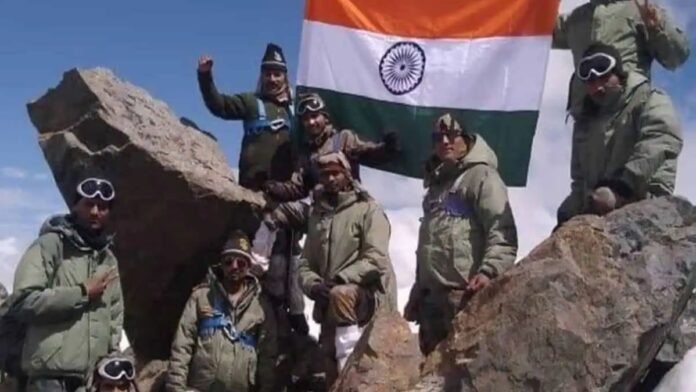Twenty-five years after the 1999 Kargil War, Pakistan’s military leadership has, for the first time, appeared to acknowledge its direct involvement in the conflict with India. This significant admission came from Pakistan Army Chief General Asim Munir during his Defence Day speech on Friday.
During his address at the Pakistan Army headquarters in Rawalpindi, General Munir said, “In the 1948, 1965, 1971, and Kargil wars between India and Pakistan, as well as in Siachen, thousands have sacrificed themselves in these conflicts.” His reference to the Kargil War, which took place from May to July 1999, is seen as the first public acknowledgment from a high-ranking official regarding the Pakistani military’s involvement. The Kargil conflict saw Pakistani soldiers infiltrate the Indian side of the Line of Control in Jammu and Kashmir’s Kargil district, which led India to launch ‘Operation Vijay’ to reclaim the strategic positions.
For years, Islamabad consistently denied that its regular army troops were involved in the conflict, instead portraying the infiltrators as “Kashmiri freedom fighters” or “mujahideen.” At the time, Pakistan claimed that its forces were merely patrolling the area while “tribal leaders” occupied the heights. The recent statement by General Munir has sparked conversations on social media, particularly on X (formerly known as Twitter), where journalists have resurfaced old posts about Pakistan’s initial refusal to accept the bodies of its soldiers who were killed during the conflict.
Former Pakistani Prime Minister Nawaz Sharif, who was in office during the Kargil War, has been openly critical of the operation, often referring to it as a strategic “blunder” by the military. Retired Lt. Gen. Shahid Aziz, who previously held a senior position in the Pakistani military, also acknowledged the involvement of Pakistani troops in Kargil after his retirement. Aziz revealed that the operation was orchestrated by a small group of individuals, including then-General Pervez Musharraf and a few top commanders, and was kept secret from much of the government.
Nawaz Sharif, who signed the 1999 Lahore Declaration with India’s then-Prime Minister Atal Bihari Vajpayee, later admitted that Pakistan’s actions in Kargil had violated the peace agreement.



